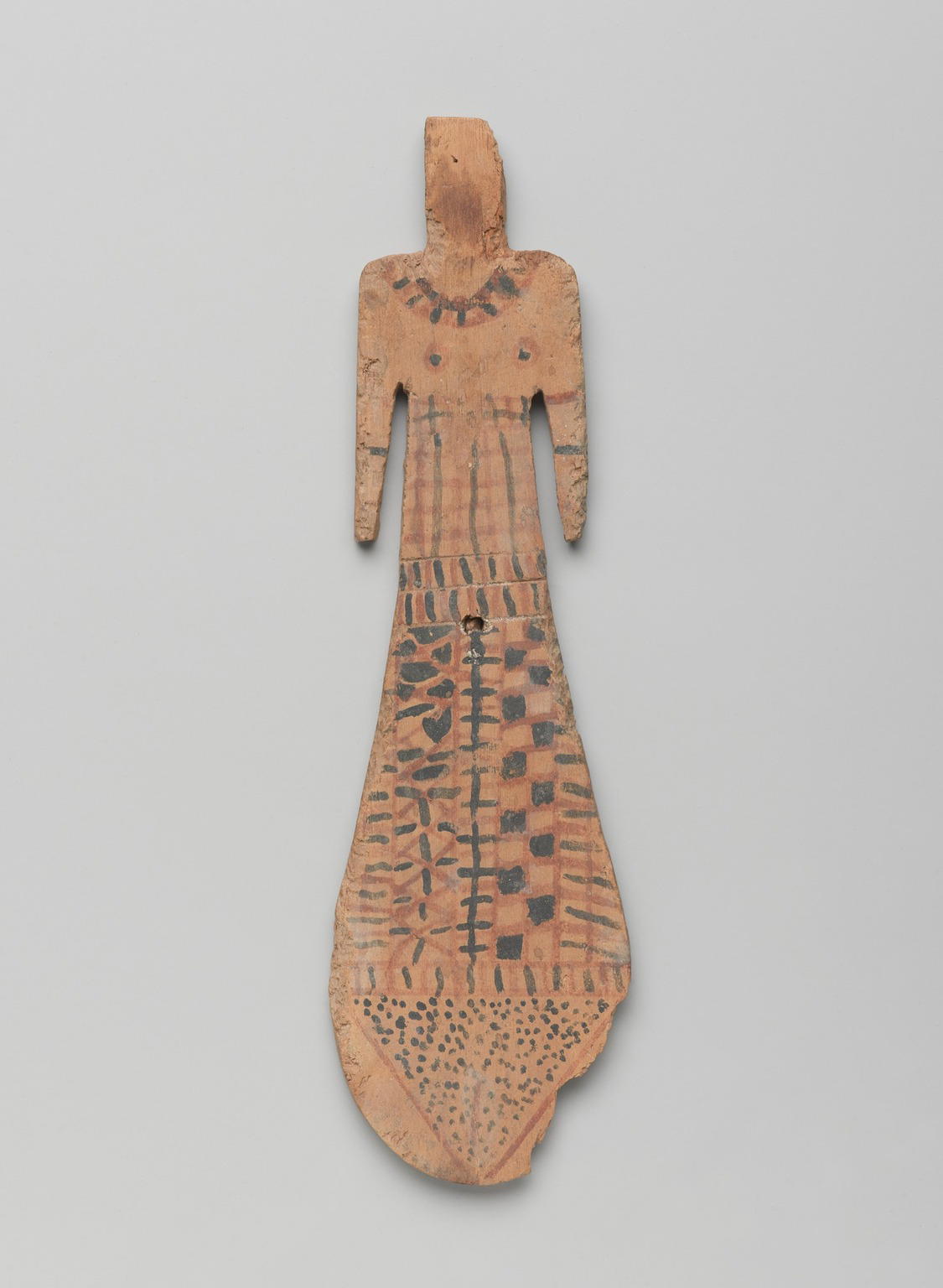Paddle Doll
ca. 2081–1700 B.C.E.
1 of 8
Object Label
So-called paddle dolls are flat, schematic representations of naked, legless female figures on which jewelry, belts, and other details have been painted or drawn. Made as fertility figures, they were dedicated to goddesses by women or couples hoping to have children. Some are adorned with strings of mud pellets, apparently imitating hair. Many also have painted images— possibly representing tattoos—of deities such as Bes and Taweret or of human couples in sexual embrace.
Caption
Paddle Doll, ca. 2081–1700 B.C.E.. Wood, pigment, 8 3/4 x 2 1/2 x 1/4 in. (22.3 x 6.3 x 0.7 cm). Brooklyn Museum, Charles Edwin Wilbour Fund, 37.101E.
Have information?
Have information about an artwork? Contact us at







